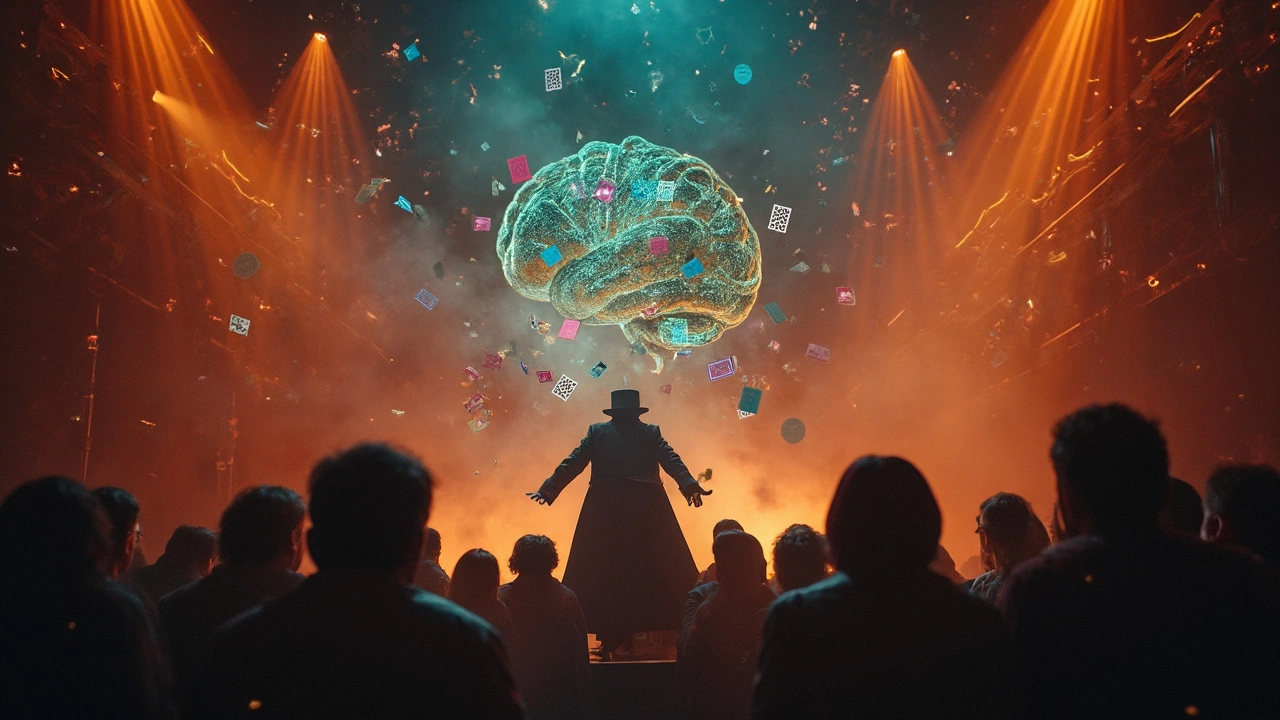The Science Behind Magic: Why Tricks Still Fool Us
Ever wondered why magic tricks keep us guessing, even when we know it’s all just a show? The secret has less to do with supernatural powers and more with sneaky psychology, clever brain hacks, and even a dash of real science. Magicians are basically masters at finding and using the gaps in our attention and perception. That’s why even the smartest adults walk away scratching their heads.
Take misdirection for example. When you’re focused on a flashy gesture, your brain tunes out the subtle move that really makes the trick work. Researchers at University College London actually hooked people up to brain scanners during magic shows—the results confirmed our brains can only focus on so much at once, giving magicians prime opportunities to slide a card or make a coin vanish.
Timing is another factor. The tiniest delay between action and payoff can leave your logical brain a step behind. That’s how “sleight of hand” works—even when you tell yourself to watch closely, your brain can’t catch fast, practiced moves. David Copperfield and Penn & Teller often discuss that practice doesn’t just refine skill, it literally short-circuits the audience’s expectations.
Ever heard of “change blindness”? That’s when your eyes see something, but your brain doesn’t notice the shift because it’s busy elsewhere. In one famous study, viewers watched a trick where cards swapped suits, and almost no one caught the switch until it was pointed out. Magicians take full advantage of these blind spots.
The science behind mind reading is even wilder. Mentalists aren’t psychic—they’re using psychological cues, body language, and sometimes even math tricks. Studies on body language show that most people leak little hints about their thoughts without realizing it. Magicians spot those cues instantly. Combine that with a few well-placed questions, and a skilled mentalist can convince you they know what you’re thinking.
Even modern technology hasn’t dulled our love of magic. Sure, smartphones and instant replays let us slow things down and reverse engineer tricks. Still, our brains are wired to crave surprise and novelty. That’s why live magic still packs a punch—being swept up in a trick taps straight into our brains’ reward centers. Harvard researchers found that surprise, in the right context, floods us with dopamine, explaining why magic thrills us, no matter how old we get.
If you want to try magic yourself, it helps to know these tricks of the brain. Most beginner illusions rely on simple misdirection and timing. Try performing a coin vanish for your friends. Tell them exactly where to look—even so, their brains probably won’t catch your hidden move. That’s when you realize: it’s not just about quick hands, but understanding how people think and see.
In the end, mastering magic means mastering human nature. When you pull off a trick, you’re not just fooling the eye—you’re juggling science, psychology, and showmanship all at once. That’s real magic. Want to learn the secrets and try out your own tricks? Stick around. You’re already thinking like a magician.

Unraveling the Science Behind Magic Tricks
- by Zephyr Blackwood
- on 3 Jan 2025
Magic tricks have always fascinated us by bending reality and making the impossible seem possible. But is it just sleight of hand, or is there more to these illusions than meets the eye? Discover the scientific principles and psychological tactics that magicians use to captivate their audiences. From the neuroscience of attention to the art of misdirection, explore the intriguing blend of science and art in magic. This article provides insights and tips for anyone curious about the real magic happening behind the curtain.
